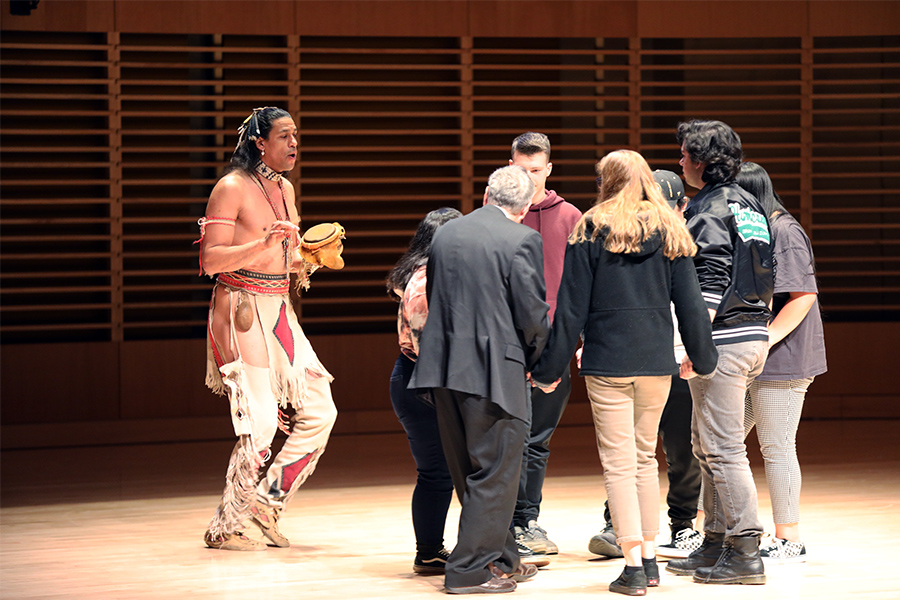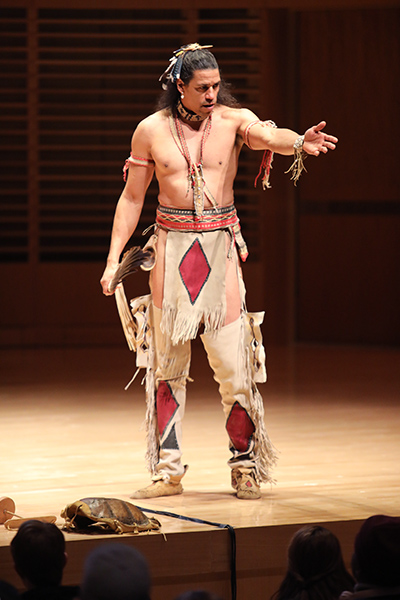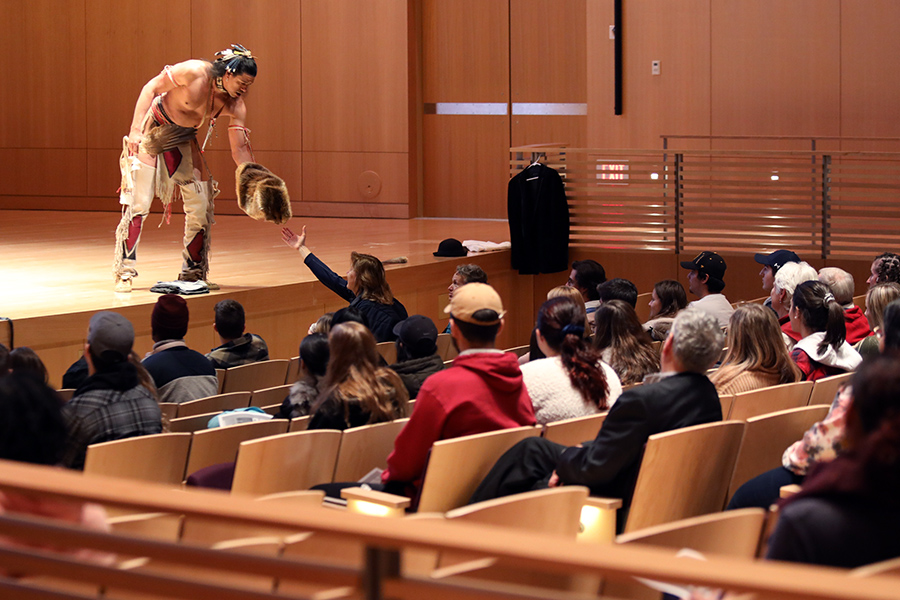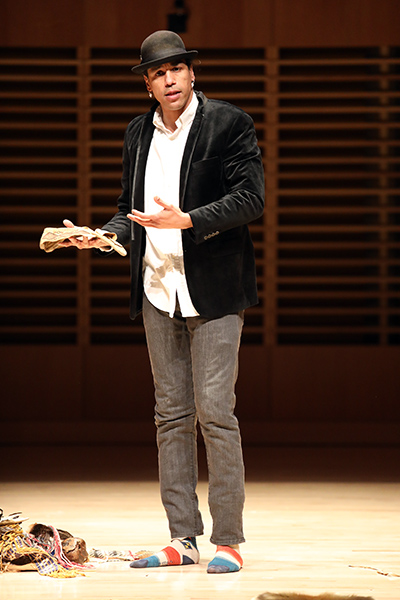- Apply
- Visit
- Request Info
- Give



Published on February 10, 2020

Actor, activist, dancer and tribal mentor Annawon Weeden of the Mashpee Wampanoag Tribe performed his one-man show at Eastern Connecticut State University on Feb. 6. The interactive performance highlighted the history of the Mashpee Wampanoag tribe from the 1400’s into the early 1800’s.

Guests walked into the dimly lit Concert Hall of the Fine Arts Instructional Center and were directed to sit center stage. When the performance began, it was clear that Weeden had asked for the arrangement to allow the audience to have a full experience. The performance began with Weeden singing from the top back steps of the concert hall, making his way down to the front as he sang and danced between aisles, at times stopping in front of audience members to allow them to observe his performance and regalia.
Moving through time, Weeden changed his clothing, speech and attitude as he told the history of the Mashpee Wampanoag people. Beginning in the 1400s Weeden recalled one the first encounters with Europeans – addressing the audience he said phrases such as “Hi” and “Friend” in Wampanoag. Not understanding the language and trying to comprehend, audience members mimicked back the words with gestures.
As the time periods changed, displays of the years projected onto the stage. In the 1600s Weeden noted how Squanto, one of the most well-known Patuxet interpreters of his time, helped the newly arrived Pilgrims settle near Plymouth, M.A. Referring to the audience as if they were settlers throughout history Weeden asked them if they were “Thirsty? I know how tired you must be from your long trip,” he said, offering them water and food.

One of the most poignant time periods throughout Weeden’s performance were the late 1700s and early 1800s when he took on the character of an enslaved Wampanoag. “The whiter the skin the purer the soul,” he said, referring to the outdated belief of many settlers that native people were lesser because of their complexion. Audience members silently listened as Weeden’s demeanor drastically changed from outspoken and friendly to guarded and cautious. “I have learned your language, your language that I have to now speak at home,” he said, marking the period as one the most critical to indigenous assimilation and loss of culture.

Weeden ended his performance by completing the changing of his regalia, which he slowly tore away from time period to time period, ending up in jeans and a shirt. He addressed the audience as himself and expressed the importance of sharing one’s history. The event ended with audience members being invited onto stage to dance and fully interact with Weeden.
To learn more about Annawon Weeden, book a performance or learn more about this project visit his foundations website at http://www.firstlightfoundation.net/p/mission-statement.html or follow him on Instagram @annawonw.
Written by Vania Galicia